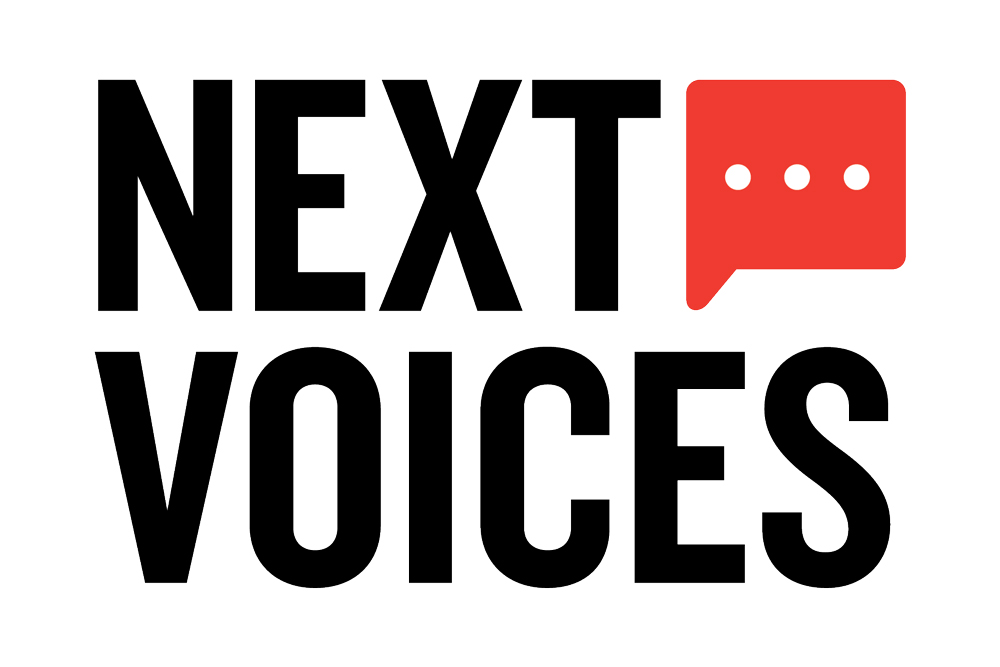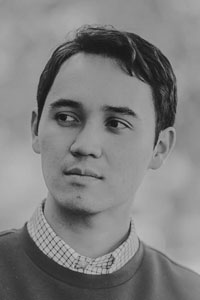
Meet the inaugural Next Voices winners:
David Fettling, Isabella Ostini and Edward Wong
David Fettling

Tell us a bit about your piece.
Every time I travel from Jakarta to Melbourne, I’m shocked at how different Indonesia looks from Australia – how all points of interest, complexity and attractiveness in the archipelago are singed away, how narrow and ugly the replacement caricature is. In “Indonesia Calling”, I wanted to describe exactly what is absent from Australia’s picture of Indonesia, then the process of flying back to Java and encountering a more fully realised, dynamic image of the country again, before examining causes of and solutions to this basic failure to “see”.
What can Australia do better in fostering relations with its Asia-Pacific neighbours?
To do something successfully, you must be interested in it. The lack of intellectual and cultural curiosity about Asia among many Australians, and the implicit idea that Asian engagement is to be a one-way street – that while Asian societies rightly seek to learn from us, we have little to learn from them – is a crucial deficiency.
What is the most significant foreign policy challenge confronting Australia?
Finding a balance between pursuit of economic opportunities and geopolitical stability, and upholding individual liberties and human rights.
Who are Australia’s best foreign policy thinkers?
When I was writing my PhD at the Australian National University, Stephen FitzGerald’s Is Australia an Asian Country? was permanently on my desk. What most interested me was his argument that successful Asian “engagement” will depend on greatly deepened cultural immersion with Asian societies and on fully committing to a multicultural, Eurasian vision of Australia. With their differing emphases, John Garnaut’s and Geoff Raby’s commentaries on China, unpacking how Australia might deal with a country that offers enormous opportunities but whose political leadership has starkly different values, are also deeply relevant to South-East Asia.
What are you working on now?
I hope to write two books, one about Jakarta and one about Kuala Lumpur, looking at them as multicultural cities. “Multicultural” in a broad sense, not only home to different races and religions but also different classes, genders and generations; people of diverse beliefs, ideas and lifestyles; migrants of various types plus the long-settled, all sharing a metropolis. I want to look at what these cities offer people, and the ways different people come together in them, or fail to do so.
Where can we read more of your work?
My website is davidfettling.com.
You can read David Fettling’s “Indonesia Calling” here.
Isabella Ostini

Tell us a bit about your piece.
I’m interested in the intersection between storytelling and policymaking, which means I love looking back at how we’ve talked about ourselves in the past. I think it’s very revealing of who we are today. So my piece, “Foreign Policy with an Australian Accent”, looks at how various prime ministers since Whitlam have gone about engagement with Asia, and how the debate has always really been, above all, about who we are and want to be as Australians.
What is the most significant foreign policy challenge confronting Australia?
I think the biggest challenge is to reject the “muddling through” approach in favour of actually wrestling with who and what we want to be. Ideally, even coming up with some bold solutions to the problems we and the world face. Australia can be a shaper – we’ve seen it happen before – but it takes a lot of effort and courage.
Who are Australia’s best foreign policy thinkers?
James Curran is fantastic at drawing out the crossovers between domestic and foreign policy, especially the importance of how we speak about ourselves. His book The Power of Speech has some real insights into questions of national selfhood. I think the teachers who help students to be better, clearer thinkers are also deeply influential – I’m especially grateful to Joanna Gardiner, Kira Sampson, Iain Henry and Frank Bongiorno in this respect.
What can Australia do better in fostering relations with its Asia-Pacific neighbours?
Nobody likes interacting with those who are insecure. Nor do they like the overly brash. So we’ve got to go about our regional interactions with a boldness and a sense of clarity about what we need and can offer, tempered by reflexivity and even humility. One thing that would really help is if our domestic and foreign policies around climate change lined up – domestic roiling about this issue can only hinder regional relationships (especially in the Pacific).
What are you working on now?
I’m in the third year of my bachelor’s degree, studying international security and political science, as well as a bit of German, history and English literature. I’m really excited about working out how all these different threads can start to pull together. So that’s my current goal – to keep on discovering resonances between the various things I’m interested in and thinking about how that might be channelled into usefully serving my community and Australia.
Where can we read more of your work?
This is the first time I’ve been published, so for now, this is it! But you can find my more in-the-moment musings on Twitter (@IOCorylus).
You can read Isabella Ostini’s “Foreign Policy with an Australian Accent” here.
Edward Wong

Tell us a bit about your piece.
As an Australian citizen who grew up in Malaysia, tales of the economic success of next-door Singapore and the old Malayan Malaccan Straits form part of my subconscious. I believe that a multicultural country such as Australia has much to benefit from in forming closer ties with the Indo-Pacific. My piece, “The New Australia”, explores what it means to be a modern Australian amid an ever-changing Indo-Pacific while suggesting that national identity is a fluid concept. I wrote this piece not to entreat us to fit a mould of what Australia should be, but rather to challenge us to develop relevant new perceptions of what a modern, multicultural Australia could be.
What is the most significant foreign policy challenge confronting Australia?
I believe an underdeveloped cultural, business and socio-economic awareness of our Indo-Pacific neighbours is the most significant policy challenge confronting Australia today, as it deprives us from maximising the full potential of our geopolitical and economic influence.
What can Australia do better in fostering relations with its Asia-Pacific neighbours?
Respect for languages and other cultures are fundamental stepping stones to fostering global stability and are crucial cornerstones of my personal philosophy. We could introduce more language and cultural-exchange programs with the educational institutions of our Asia-Pacific neighbours starting at a primary-school level to better forge business, research and other collaborative relations. Interest in Asian and Pacific languages has been waning, and this is a problem if we are to remain internationally competitive.
Who are Australia’s best foreign policy thinkers?
Barrister and human rights advocate Julian Burnside and PwC partner Andrew Parker.
What are you working on now?
I am studying a Master of Journalism and International Relations at Monash University and plan to graduate by the end of 2019. I am applying for graduate programs in government departments and wish to pursue a career in trade and diplomacy post-graduation. I will also undertake a three-month internship with the Australian High Commission in Malaysia from October this year.
Where can we read more of your work?
You can read my journalism at The Age, Young Diplomats Society, MIRSA Journal, MOJO Correspondent, MOJO News, Esperanto Magazine, The Junction, Medium and Rock Rehab Production’s blog.
You can read Edward Wong’s “The New Australia” here.
Read more about upcoming opportunities for Next Voices here.
View all of the finalists for Next Voices here.






